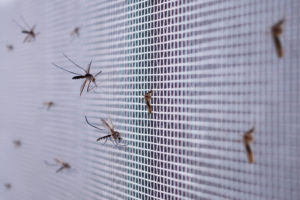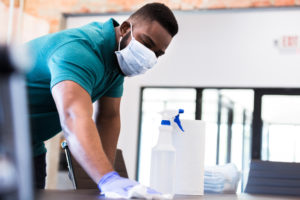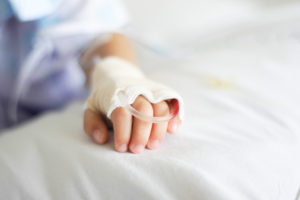The numbers…
Are you looking at the rising number of vaccines in the community, next to the rising number of cases and thinking to yourself, “Wait a second? I thought vaccines were supposed to stop the spread of the COVID-19 virus?”
Well, you’re not the only one. But, let’s take a deeper look!
We should all know by now that vaccines are proven to provide a high degree of protection from virus and disease (psssst, remember Polio, Tetanus, Rubella, Whooping Cough…) and the COVID-19 vaccine is no exception. But – it is expected that a small percentage of people who get vaccinated may still become infected. No vaccine in human history has ever been 100% effective. Think of the vaccine like mosquito netting, where mosquitos are the virus. Sure, maybe one or two very small ones may still be able to find their way through, but most of the annoying bloodsuckers will not. You are absolutely, positively far more protected sitting underneath a mosquito net than you are without one at all. Just like you are absolutely, positively more protected with a full vaccine series than without.
Another benefit to being vaccinated is that if you do end up getting COVID-19, your symptoms and severity of the infection will be far, far less. In fact, the vaccine prevents serious outcomes like hospitalization and intensive care unit admissions between 70-90% of the time. So yes, you may test positive for the virus – but there is a far less chance of you getting sick, and even less of a chance that you would get sick enough to need to be admitted to the hospital.
Those who are not yet vaccinated don’t have as great of chances. An unvaccinated person is actually eight times more likely to contract COVID-19 compared to someone who has received both shots. As of August 7th, 2021, unvaccinated people make up the majority of all reported COVID-19 cases — a whopping 95% of reported cases. Even worse, they make up 92% of hospitalizations and deaths, too. This is why we continue to encourage all eligible folks to be vaccinated as soon as they can be. Not only does it protect them (hello – check out the stats above), but it also protects our hospitals, their staff, and their patients as well.
So, while case counts provide us with insight into how many people are infected, they don’t tell the whole story. They don’t tell us how many people are hospitalized or how sick the people are that are testing positive. What they do tell us, is that COVID-19 and its variants are still circulating in our community. Thankfully, we have the power to control how severely they impact our health and community by choosing to get vaccinated.
But my chances are still pretty good, right?
Now, many people may read this and think to themselves, “My chances of surviving the virus even if I do contract it are still pretty good” and for most of you, that is true. If you’re in good health, physically fit, have a properly working immune system and no pre-existing health issues or medical conditions, yes – the chances of you contracting and not dying from COVID-19 are pretty good. However, when talking about a virus that has the power to not only harm but kill others, it is important to think about those others when forming your decision to get – or not get – the vaccine.
While you may fight off the COVID-19 infection with ease – you big show off – there is a great chance that you will pass the virus along to someone else that may not be able to do the same. Think about this: How many times in one week do you come into contact with children? Do you have any of you own? Do you coach? Do you babysit? What about nieces or nephews? A good friend’s new baby? Children (at least those born after 2009) are not yet eligible for the vaccine. They don’t have the chance to further protect themselves beyond their natural immunity. So while you may walk away from the COVID-19 infection with nothing more than mild, flu-like symptoms and the loss of taste and smell for a few days, they may not walk away from the COVID-19 infection at all.
Children aren’t the only ones we need to consider when making the decision to be vaccinated or not. Seniors, those with weaker immune systems (cancer patients undergoing chemotherapy, for instance) and anyone with a severe medical condition are also at a higher risk from becoming severely ill and dying once contracting the virus. And remember, although you may not come into close contact with any of the abovementioned, you do likely come into contact with someone who does. This is why choosing to be vaccinated protects you, the people you know, and the people you don’t know.
Vaccines truly prevent great harm. Do they carry a risk? Sure. But it’s a tiny risk, and one that becomes increasingly smaller when compared to the risk of not being vaccinated at all. Put it this way – if you are a betting person, there is a far greater chance that getting the vaccine will protect you rather than harm you.
If you are still unsure as to whether or not the vaccine is the right choice for you, that’s okay. Making the decision to receive your COVID-19 vaccine, like any other health decision, should be a personal, informed and consensual choice. For this reason we provide a plethora of valuable, up-to-date and accurate information and resources on our website. We also have Public Health professionals available at each of our pop-up and mobile clinics across Chatham-Kent to answer any vaccine-related questions you may have before making your choice.
If you believe that you’re ready to step up and get your shot, you can book an appointment at a time and location that is convenient for you at www.GetYourShotCK.ca . If “walk-in” is more your style, you can find a list of our pop-up and mobile clinics at www.CKPublicHealth.com/Clinics. Some pharmacies and select healthcare providers are also offering COVID-19 vaccinations at their locations.




